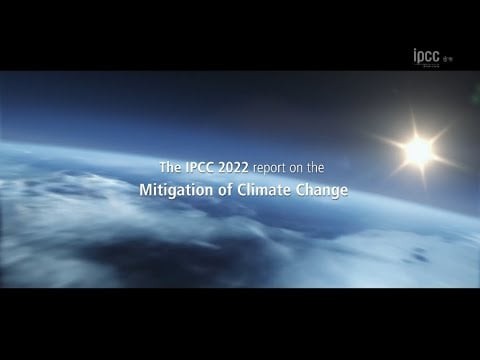Climate change and global warming have undoubtedly had an impact on the world’s oceans, and while the United Nations’ latest climate report shows that global greenhouse gas emissions were at their highest levels in the previous decade, there’s still a sliver of hope.
From 2020-2019, average annual global greenhouse gas emissions were at their highest levels in human history, but the rate of growth has slowed, according to the Intergovernmental Panel on Climate Change’s report released this month.
Without immediate and deep emissions reductions across all sectors, limiting global warming to 1.5°C is beyond reach. However, there is increasing evidence of climate action, scientists said in the report.
Since 2010, there have been sustained decreases of up to 85% in the costs of solar and wind energy, and batteries. An increasing range of policies and laws have enhanced energy efficiency, reduced rates of deforestation and accelerated the deployment of renewable energy.
According to IPCC Chair Hoesung Lee:
“We are at a crossroads. The decisions we make now can secure a liveable future. We have the tools and know-how required to limit warming. I am encouraged by climate action being taken in many countries. There are policies, regulations and market instruments that are proving effective. If these are scaled up and applied more widely and equitably, they can support deep emissions reductions and stimulate innovation.”
The Summary for Policymakers of the IPCC Working Group III report, “Climate Change 2022: Mitigation of Climate Change” was approved on April 4, 2022, by 195 member governments of the IPCC, through a virtual approval session that started on March 21. It’s the third installment of the IPCC’s Sixth Assessment Report (AR6), which will be completed this year.
Limiting global warming will require major transitions in the energy sector, according to the report. This will involve a substantial reduction in fossil fuel use, widespread electrification, improved energy efficiency, and use of alternative fuels (such as hydrogen).
According to IPCC Working Group III Co-Chair Priyadarshi Shukla:
“Having the right policies, infrastructure and technology in place to enable changes to our lifestyles and behavior can result in a 40-70% reduction in greenhouse gas emissions by 2050. This offers significant untapped potential. The evidence also shows that these lifestyle changes can improve our health and wellbeing.”
Read the full report here or check out the video below.


